Embarking on your chess journey? Discover why mastering chess basics for beginners is the key to your success.
The solution to 90% of your chess problems is surprisingly simple. However, many chess players believe they need sophisticated training to boost their ratings. The catch lies in human psychology – the basics aren’t flashy or particularly entertaining, but they undeniably work.
When scrolling through Twitter, it’s common to find Chess Improvers discussing complex issues they encounter.
Fellow #chesspunks What things do you all do to improve your middlegame? I am finding that the bulk of my losses (these days) are consistently due to inaccuracies in the middlegame that lead to my demise in the endgame. Any #UnsolicitedAdvice is welcome. pic.twitter.com/t9jv2p7MDL
— Chess Von Doom (@ChessVonDoom) February 28, 2024
The allure of solving intricate problems gives the illusion of progressing like a Grandmaster, yet, in reality, many plateaus in chess, especially for those below 2000, can be conquered by focusing on the basics.
To illustrate, I recently examined Omar’s last six losses on his chess.com profile. Notably, none were due to sophisticated inaccuracies but rather to basic blunders. Here are the key moments from his games:
Game 1: Blundering the Queen in 1 move.
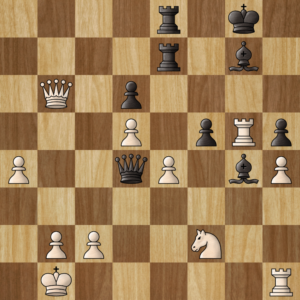
Omar played 30…Qd4 and had to resign after 31.Qxd4 (the Bishop on g7 is pinned).
Game 2: Blundering the Exchange (by a Knight fork), then blundering a full Rook.
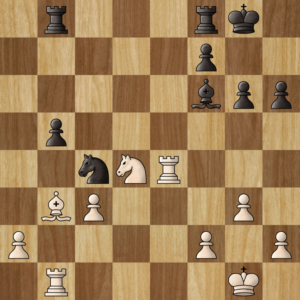
After trades on e4, Omar missed a simple Fork at d2: 23. Nd2 won the exchange.
Game 3: Blundering a Knight Fork to lose a full Rook. Horseys are tricky!
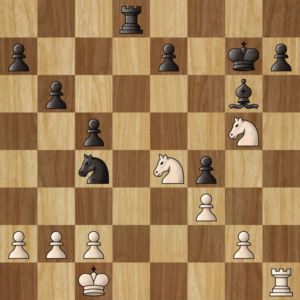
Omar played 29…Ne5-c4 and missed 30.Ne6+! winning the Rook on d8.
Game 4: Miscounting piece captures and losing a Piece. Then, losing another piece to a pin.
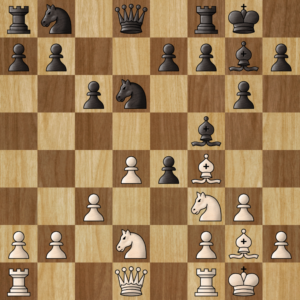
11.Bxd6? didn’t work, as after exf3! 12.Bxb8 fxg2! White’s Rook and Bishop are hanging, resulting in the loss of a piece.
Game 5: Sacrificing an exchange without need (fancy, not good). Then, blundering a piece to a counting mistake.
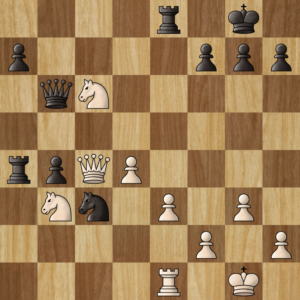
30.Nxb4?? loses a piece after Rxb4 31.Qxc3 Rxb3
Game 6: Blundering two pawns early in the game.
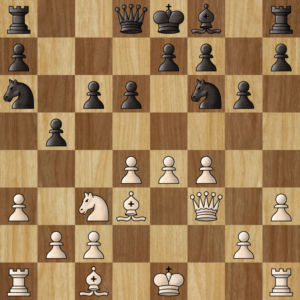
9…b4? was a big mistake, after 10.Bxa6 bxc3 11.bxc3 White is a pawn up.
Omar, rated around 1000 on Chess.com, is a diligent chess improver but tends to overlook the basics for more enjoyable, sophisticated work.
The reality is if you’re below 1500 Online, your primary focus should be on not blundering pieces. As seen in Omar’s case, this simple adjustment can make a substantial difference.
In the pursuit of chess excellence, remember that before diving into intricate strategies, ensuring a solid grasp of the basics is paramount. It’s not about exposing weaknesses but acknowledging that improvement starts with fundamental skills.
If you want to master the basics, particularly if you’re below 1200 Online, consider joining the waiting list for my upcoming course, “Beginner Chess Mastery.” The course will be out on March 19th and will teach you all the fundamentals you need to reach 1200 Online and beyond.
I’m sure my ‘less but better’ approach will help you improve your chess.
Keep improving,
Noël
PS: You can get articles like this one for free into your inbox once a week. Join 16,500+ chess improvers by subscribing to my free weekly newsletter.